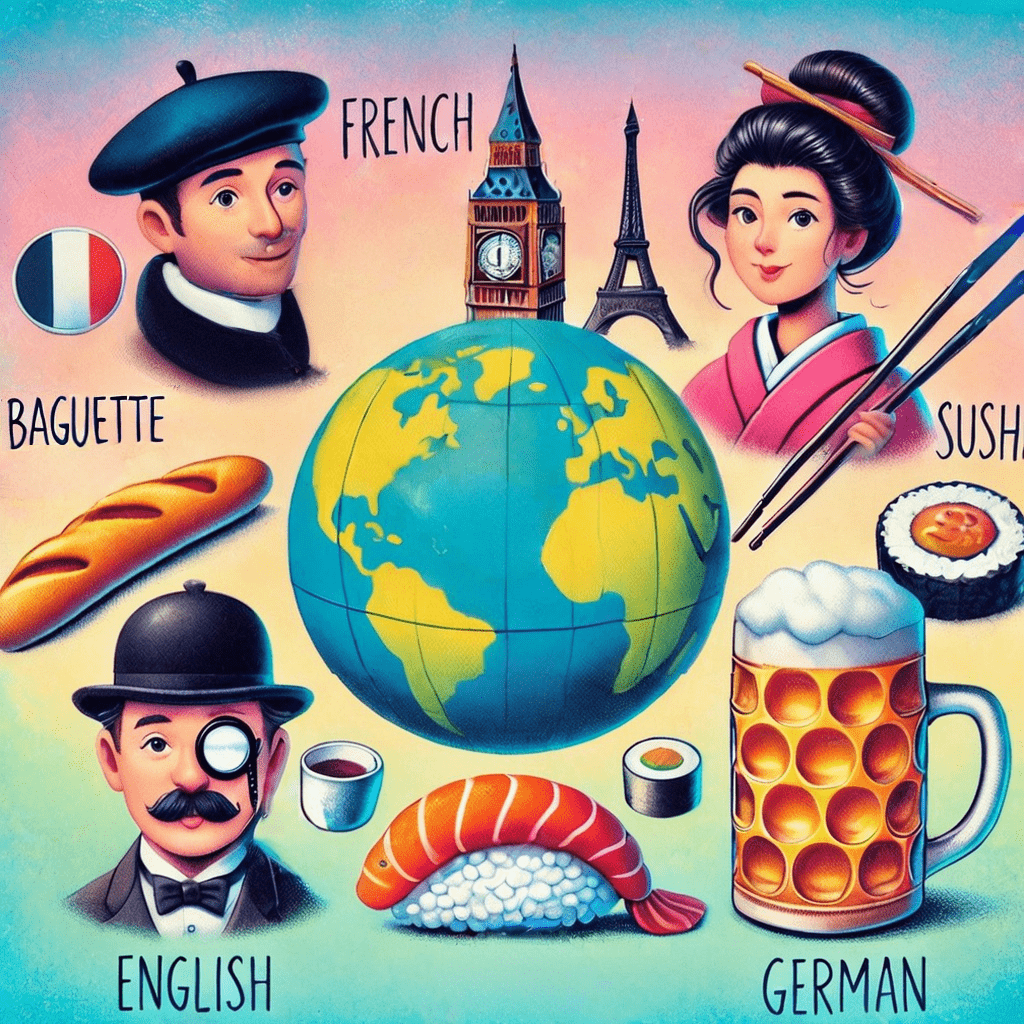Blog

Stereotypes about languages—like French being the language of love or German sounding harsh—offer fascinating insights into cultural perceptions. This article unpacks famous language stereotypes, tracing their origins and uncovering the truths (or myths) behind them. Discover how these ideas shape our views and reveal the deeper beauty of each language.
Languages are more than just a means of communication — they’re deeply tied to culture, history, and identity. Over time, certain stereotypes about languages have emerged, often reflecting cultural perceptions, misunderstandings, or even humor. Let’s explore some of the most famous language stereotypes, their origins, and whether there’s any truth behind them.
This stereotype paints French as inherently romantic, evoking images of Paris, poetry, and whispered sweet nothings.
Origins:
The association likely comes from French literature, art, and a long-standing cultural emphasis on romance. The melodious sounds of French and its poetic expressions, such as mon amour (my love) and je t’aime (I love you), reinforce this perception.
Truth or Fiction?
While French is undeniably beautiful, the idea of it being the "most romantic" language is subjective. Romance exists in every language!
Many believe German is a harsh, guttural language, often depicted in movies or TV shows with exaggerated shouting.
Origins:
This stereotype stems from German’s strong consonants and compound words, which can sound imposing to non-speakers. Pop culture depictions of stern German characters have amplified this idea.
Truth or Fiction?
While German has some hard sounds, it also has soft, poetic qualities. Consider the word Schmetterling (butterfly)—does that sound harsh?
Mandarin is often labeled as an incredibly difficult language, with its tonal system and complex characters.
Origins:
This stereotype arises from Mandarin’s unique features, such as its four tones and thousands of characters, which differ significantly from alphabet-based languages.
Truth or Fiction?
Mandarin can be challenging for English speakers, but it’s not impossible. Its grammar is simpler in some ways (e.g., no verb conjugations), and consistent practice makes learning manageable.
Many people believe Spanish is one of the easiest languages for English speakers to pick up.
Origins:
Spanish shares many cognates with English (e.g., hospital, animal) and has straightforward pronunciation and grammar rules, making it appear accessible.
Truth or Fiction?
Spanish can be easier to learn than other languages for English speakers, but it still requires effort. Mastering verb conjugations and regional accents can be challenging.
Japanese is often stereotyped as the language of anime fans and sushi enthusiasts.
Origins:
The global popularity of Japanese anime, manga, and cuisine has tied these cultural elements to the language.
Truth or Fiction?
While these elements are part of Japanese culture, the language encompasses much more, from formal business contexts to ancient literary works.
There’s a stereotype that Italians use dramatic hand gestures to emphasize their speech.
Origins:
Italian hand gestures have a rich history, stemming from the need to communicate in bustling markets or across regional dialects.
Truth or Fiction?
True! Hand gestures are integral to Italian communication, often adding emotion or clarity to conversations.
Russian is often perceived as an aggressive language, with its rolled r’s and strong intonation.
Origins:
This stereotype may stem from media portrayals of Russian villains or the unfamiliarity of Slavic sounds to Western ears.
Truth or Fiction?
While Russian has strong consonants, it can also sound soft and melodic, especially in poetry or lullabies.
People often view British English as formal and refined, while American English is seen as relaxed and colloquial.
Origins:
This likely stems from the historical association of British English with aristocracy and American English with cultural informality.
Truth or Fiction?
Accents and vocabulary vary widely within both countries, and sophistication or casualness depends on context, not geography.
Some assume Arabic is primarily a language for Islamic prayers and religious texts.
Origins:
Arabic’s central role in Islam, as the language of the Quran, has overshadowed its secular uses in literature, science, and daily life.
Truth or Fiction?
Arabic is a vibrant, diverse language spoken in 22 countries, used in everything from poetry to pop songs.
English is often considered easy to learn because of its global prevalence and relatively simple verb conjugations.
Origins:
Its widespread use in business, media, and education makes English feel accessible.
Truth or Fiction?
English has irregular spelling and complex idioms that challenge learners. Its “easy” reputation depends on your native language.
Language stereotypes are often rooted in cultural perceptions and partial truths, but they don’t tell the whole story. Every language has its own beauty, complexity, and quirks that reflect the culture and people who speak it. Exploring languages beyond their stereotypes can lead to a deeper appreciation of their uniqueness and diversity.